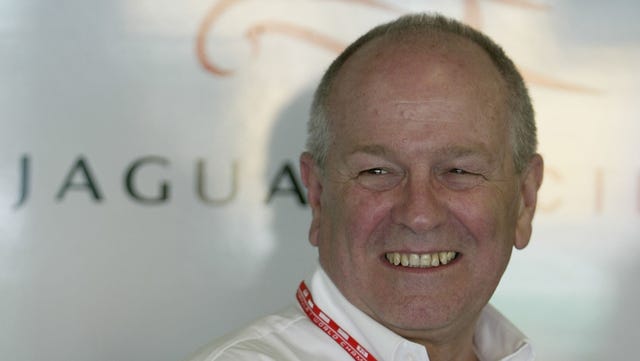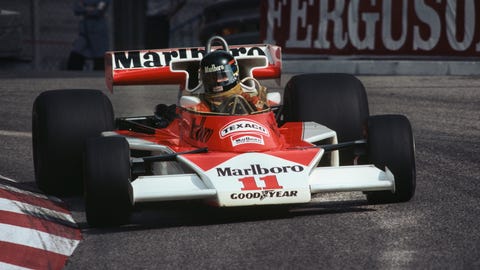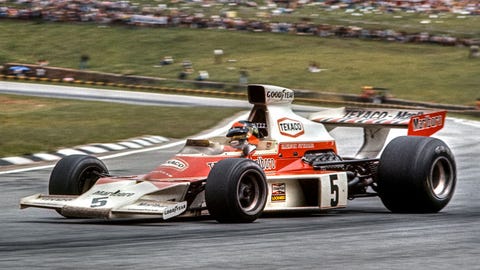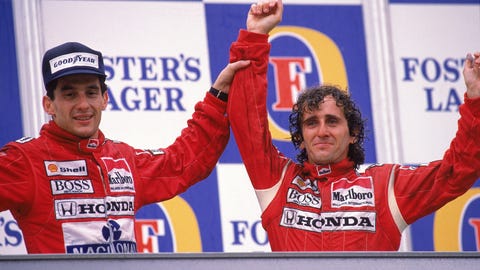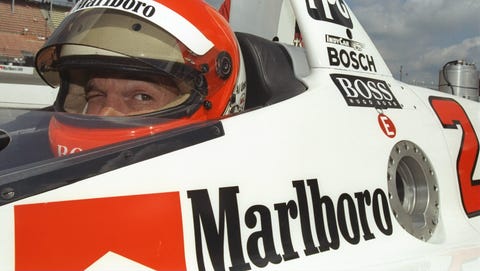John Hogan died Sunday as a result of complications from the COVID-19 virus. He was 77.
Hogan was among Formula 1’s most-significant players, helping transform the sport into the global business it is today. He did this in his role as the man in charge of the Marlboro budgets from the early 1970s until his retirement from Philip Morris International in 2002.
For much of that time he sat on the FIA Formula 1 Commission as the representative of the sponsors. He did all of this while maintaining a low profile and was not in the least bit bothered when glossy magazines listed the most influential people in F1 and left him out. He didn’t care. He let the results speak for themselves.
“Hogie,” as he is known in the business, ranks with Bernie Ecclestone and Elf’s Francois Guiter as the primary forces in creating modern F1, not only by providing money for the sport, but also by putting together great teams.
When McLaren was caught out in 1975 when Emerson Fittipaldi departed unexpectedly to join his brother’s Fittipaldi Automotive, Hogan played an important role in putting James Hunt into the team, leading to the celebrated 1976 battle for the World Championship between Hunt and Ferrari’s Niki Lauda.
Later, when Lauda decided he wanted to return from his retirement for the 1982 season it was Hogan who made it happen. Lauda would be World Champion in 1984. And it was Hogan, too, who pushed for the young Mika Hakkinen to become a McLaren driver, ultimately leading to two World Championships, in 1998 and 1999. By then Marlboro had switched its support away from McLaren to Ferrari, where the sponsorship was used to build the superteam that dominated F1 with Michael Schumacher in the early 2000s.
Hogan was born in Australia and first became interested in motorsport at just 6 years old, thanks to seeing racing movies in the local cinema. His father was in the Australian army and when he was posted to Singapore in the mid 1950s, John was shipped off to a boarding school in England. One of his school friends was a boy named Malcolm Taylor, whose father owned a pub near Liverpool. As a result the two young men went to see the Aintree 200 in 1964. This was an F1-F2 race won by Australian Jack Brabham, a day which fueled Hogan’s passion for the sport still further. Taylor later became Malcolm McDowell, the celebrated film actor, who would soon become a star with the movie If in 1968 and A Clockwork Orange in 1971.
As his friend rose to fame, Hogan moved up from being an advertising trainee with Nestlé in London to working with various London agencies on accounts such as Procter & Gamble and General Foods before moving to Erwin Wasey where he ran the Coca-Cola account. Through another London-based Australian, Tim Schenken, he got to know a lot of motor racing people and quickly realized that the sport had huge potential for global sponsors. Hogan helped to fund several youngsters, providing Coca-Cola sponsorship for rising Scottish star Gerry Birrell in Formula 2 and helping a young James Hunt.
In his spare time, Hogan took on the role of marketing manager of Rondel Racing, helping former Brabham mechanics Ron Dennis and Neil Trundle to raise money. Unfortunately, it was not a good time to do that as the oil crisis had just hit and there was little sponsorship available.
At the end of 1973, Hogan decided to leave Erwin Wasey and move to Switzerland to work as promotions coordinator for Philip Morris’s Marlboro cigarette brand, which had started sponsoring BRM in F1 in 1972. It was clear to Hogan that the BRM deal was not going anywhere and so in 1973 extra money was found to support Frank Williams, who ran the Iso-Marlboro team. Neither team was a success and so in 1974, Hogan decided to move the Marlboro budget to McLaren for Emerson Fittipaldi. The team won the World Championship that year. In 1975, Ferrari dominated and McLaren lost Fittipaldi to his family team that winter, with Hogan’s old friend Hunt being drafted in for 1976. The Englishman won the title.
It was the year that Formula 1 really took off as a television sport and Marlboro poured more and more money in. In 1977 Hogan helped to get Gilles Villeneuve into a McLaren for his F1 debut at Silverstone, but the team decided not to go with the French-Canadian in 1978 and so Hogan helped place Villeneuve at Ferrari beginning a relationship between the Italian team and the tobacco company that continues to this day. This would expand quietly over the years, with Marlboro first paying the Ferrari drivers’ salaries before becoming the team’s title sponsor.
By 1980, the original McLaren team’s fortunes were waning and Hogan orchestrated a merger with the team and the F2 operation Project 4, led by Dennis. The resulting team was called McLaren International and with help from John Barnard’s revolutionary designs the team won a string of World Championships with Lauda, Alain Prost and Ayrton Senna. This led to McLaren’s famous 1988 season when Prost and Senna won 15 of the 16 World Championship races, a stunning record.
Hogan also funded the Marlboro World Championship team, overseeing the careers of dozens of young drivers, notably Mika Hakkinen, Eddie Irvine and Alex Zanardi. It also led to Marlboro funding Roger Penske’s efforts in IndyCar and to an involvement in motorcycle racing.
Hogan’s ambition remained to get the brand as the title sponsor of Ferrari but it was not until McLaren’s downturn in fortunes in the mid-1990s that the Marlboro budget was switched to Ferrari. By then Hogan was marketing vice president of Philip Morris and was a key player on the Formula 1 Commission. He would remain in these roles until he retired in 2002 and was then briefly involved with Jaguar Racing as sporting director, before settling back into a consulting role, keeping a low profile, as always.
One of his final roles was a mentor to McLaren F1 CEO Zak Brown at Brown’s former business Just Marketing.
I wouldn’t be where I am today without John Hogan and there are many in the sport who would say the same. Respected by everyone, he taught and advised me wisely. My deepest sympathies to Annie, Ally and Andrew. RIP Hogie pic.twitter.com/d7AciF3MsM
It’s a new year and if you haven’t registered to participate in the comments section below and join in the discussion, now is the perfect time.
Source: Read Full Article

